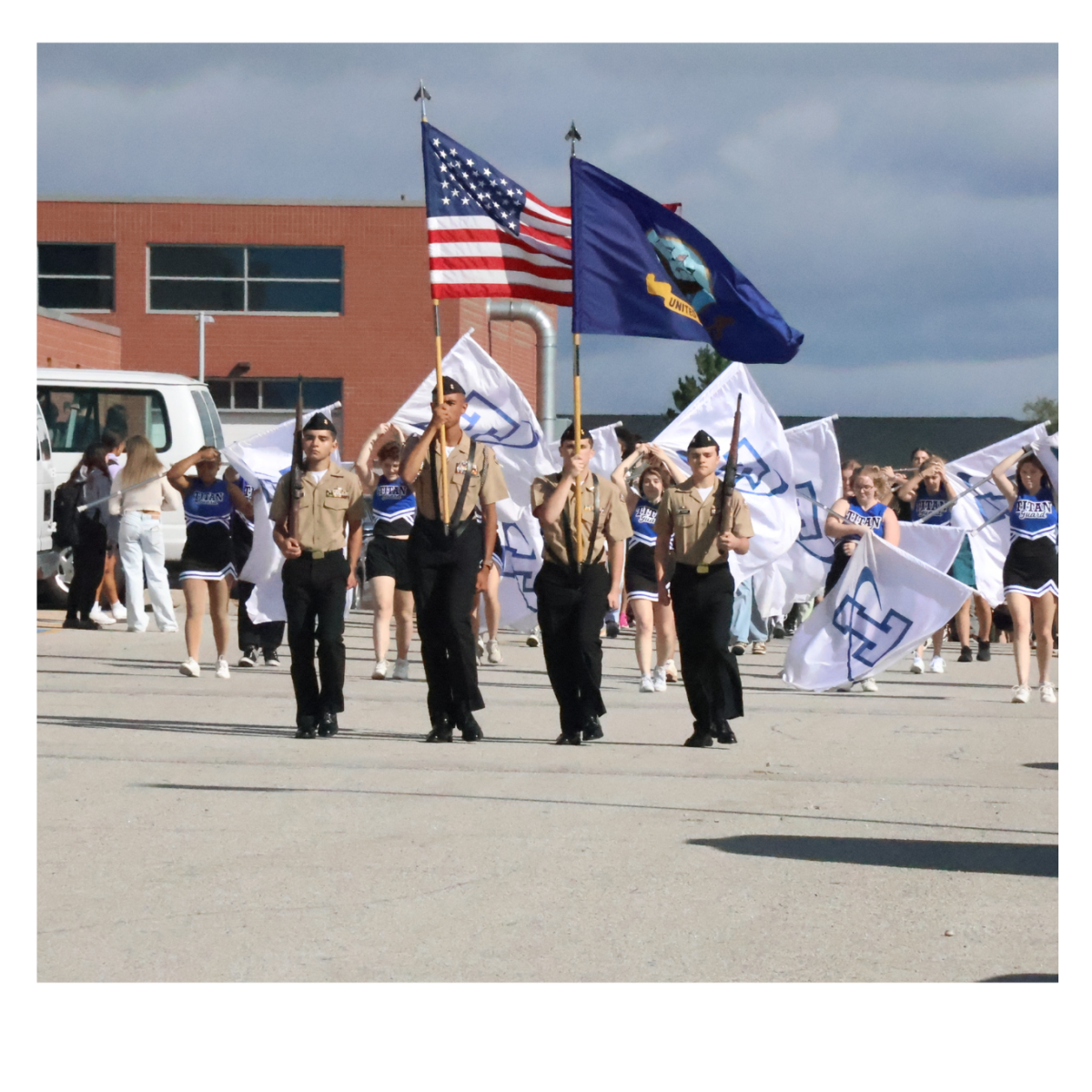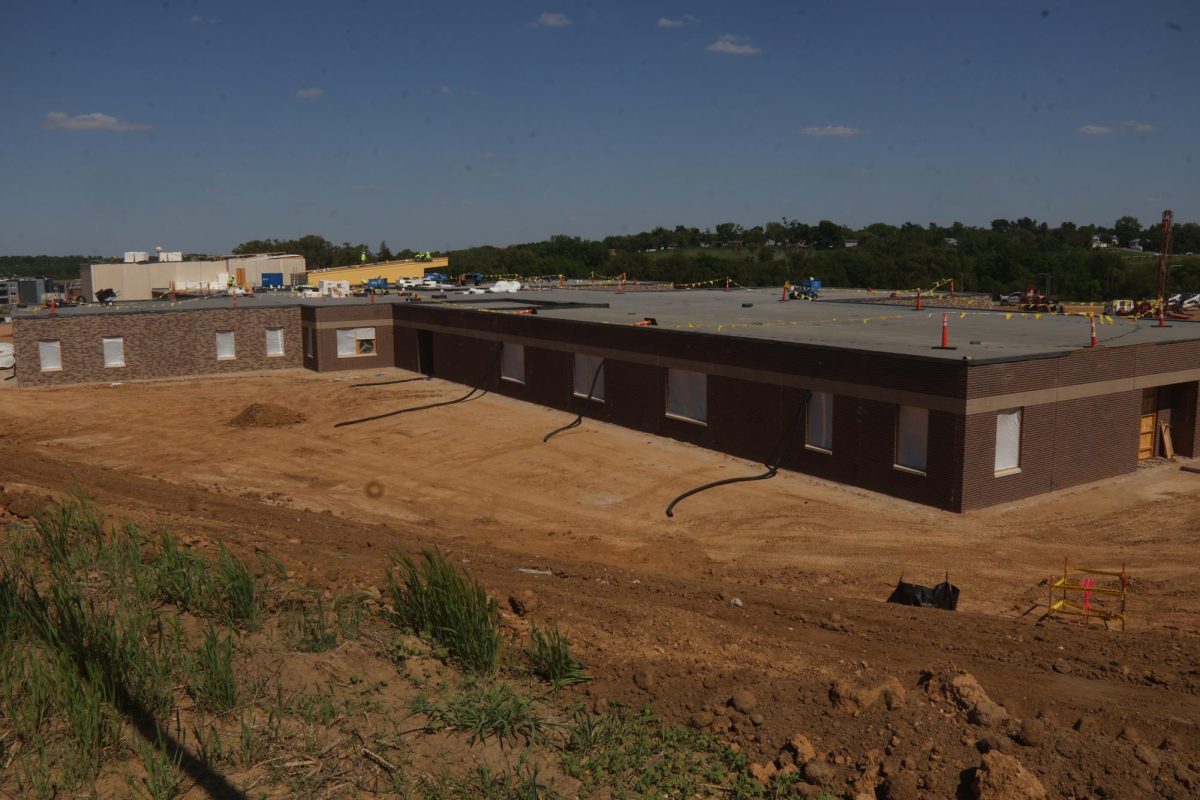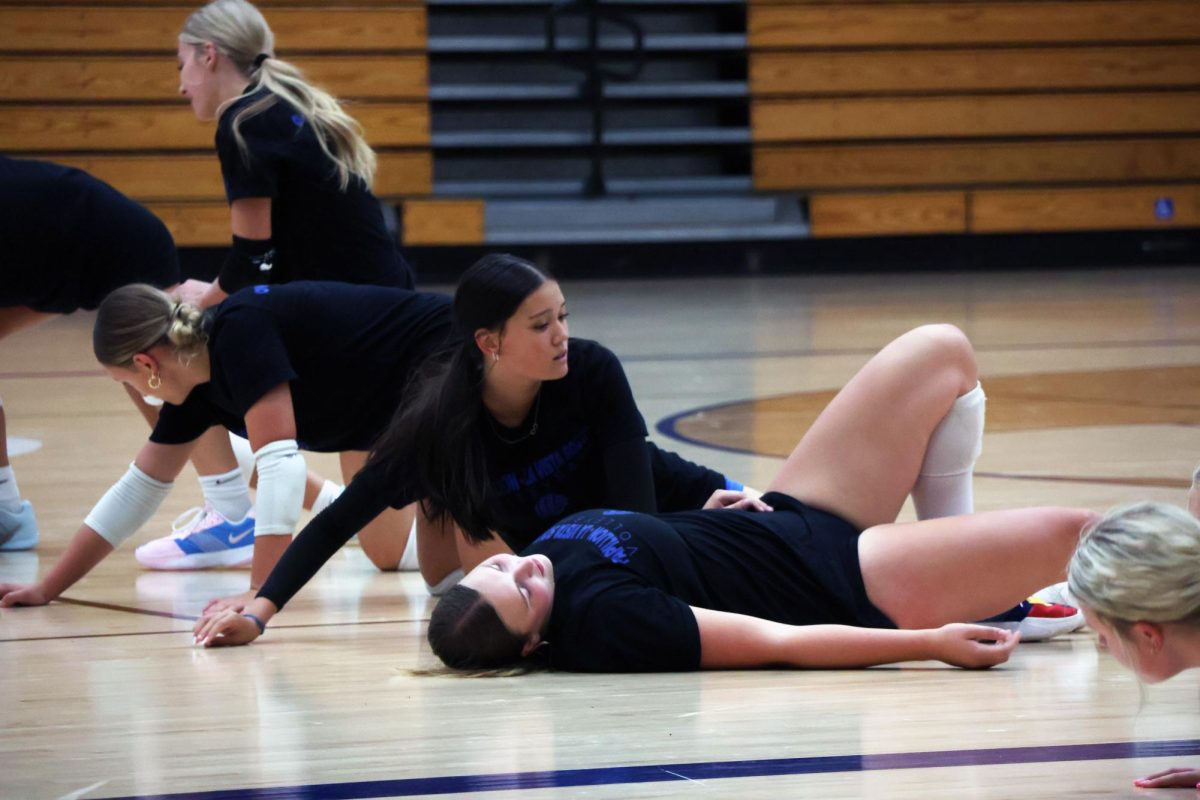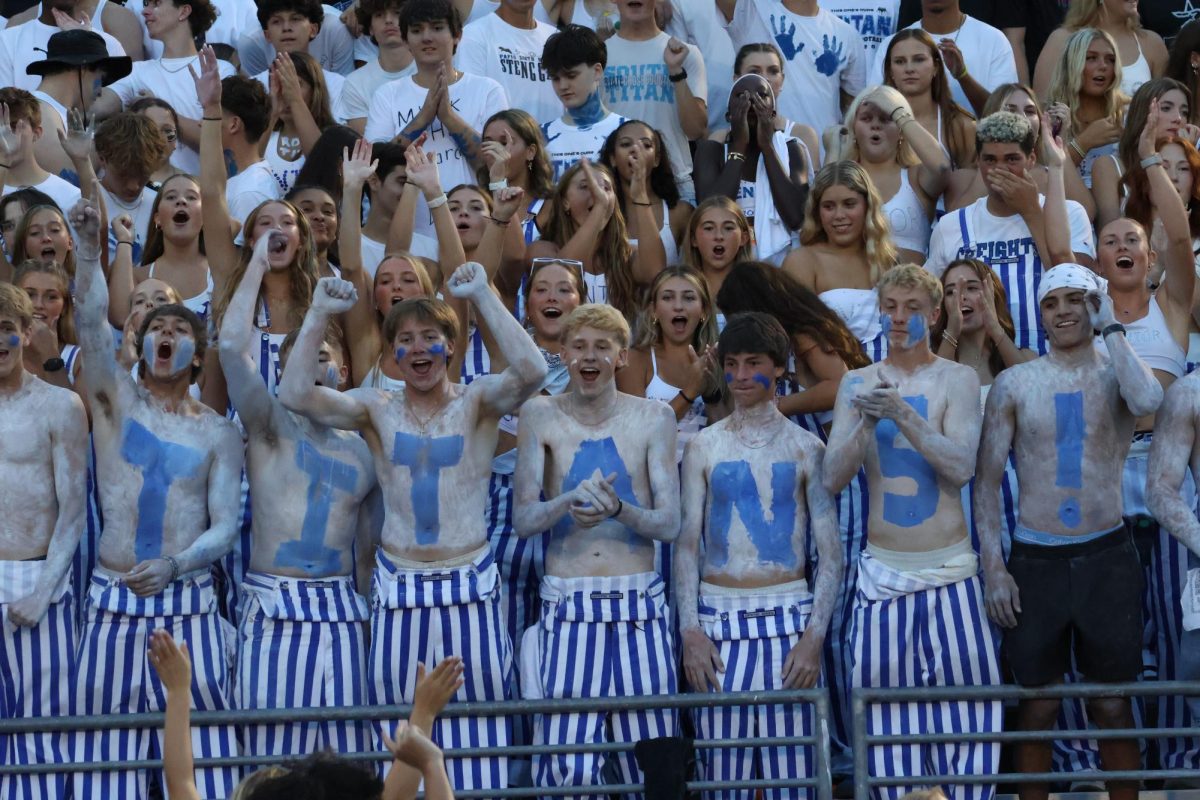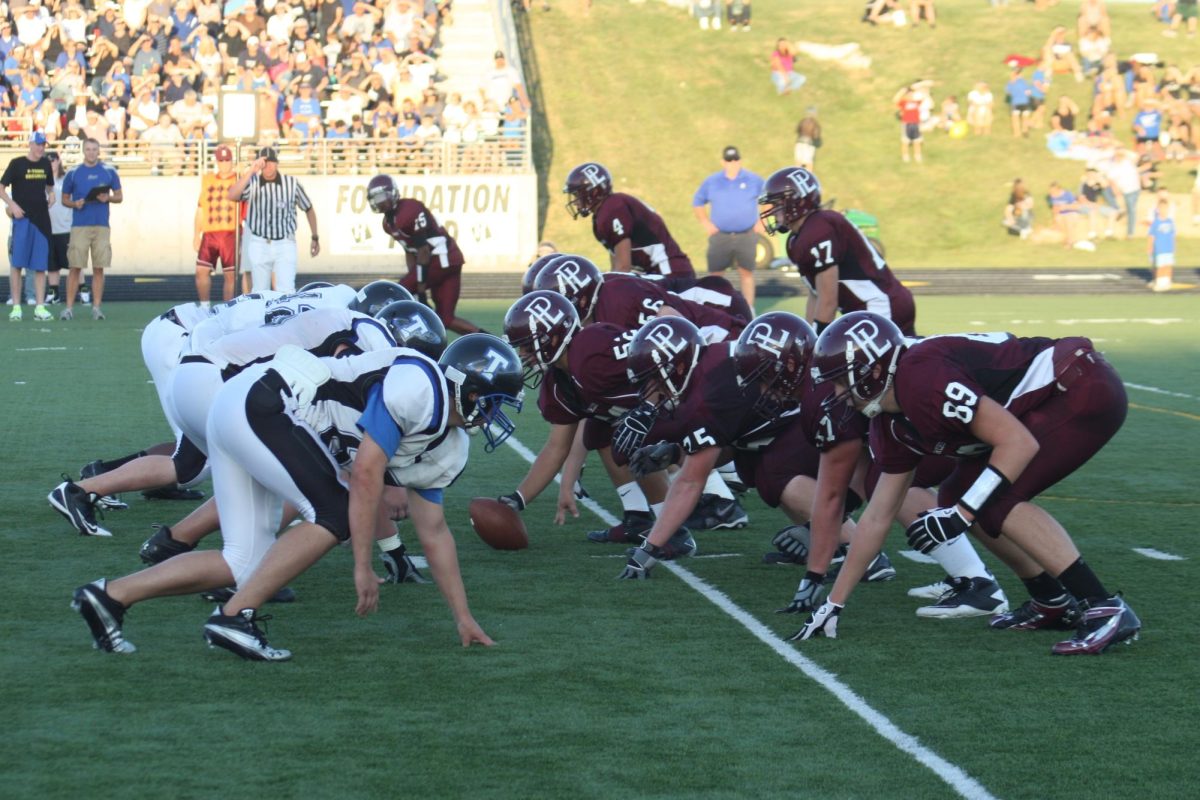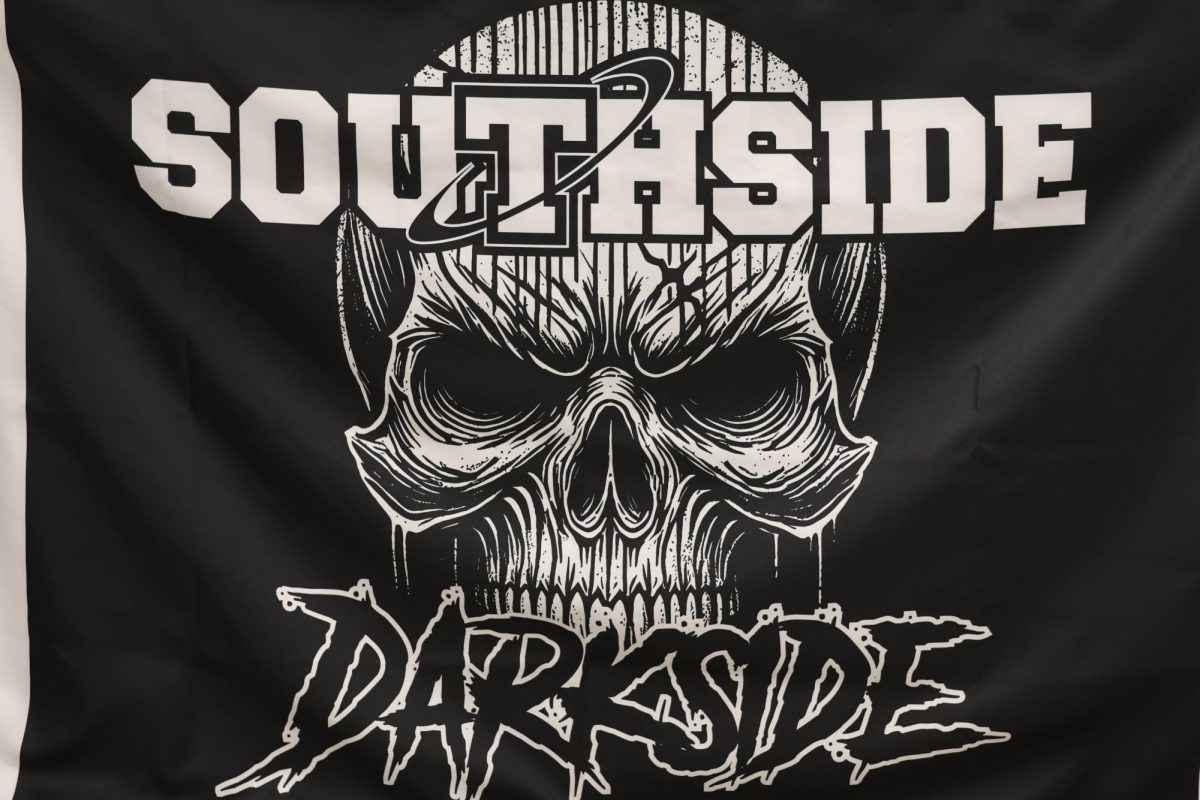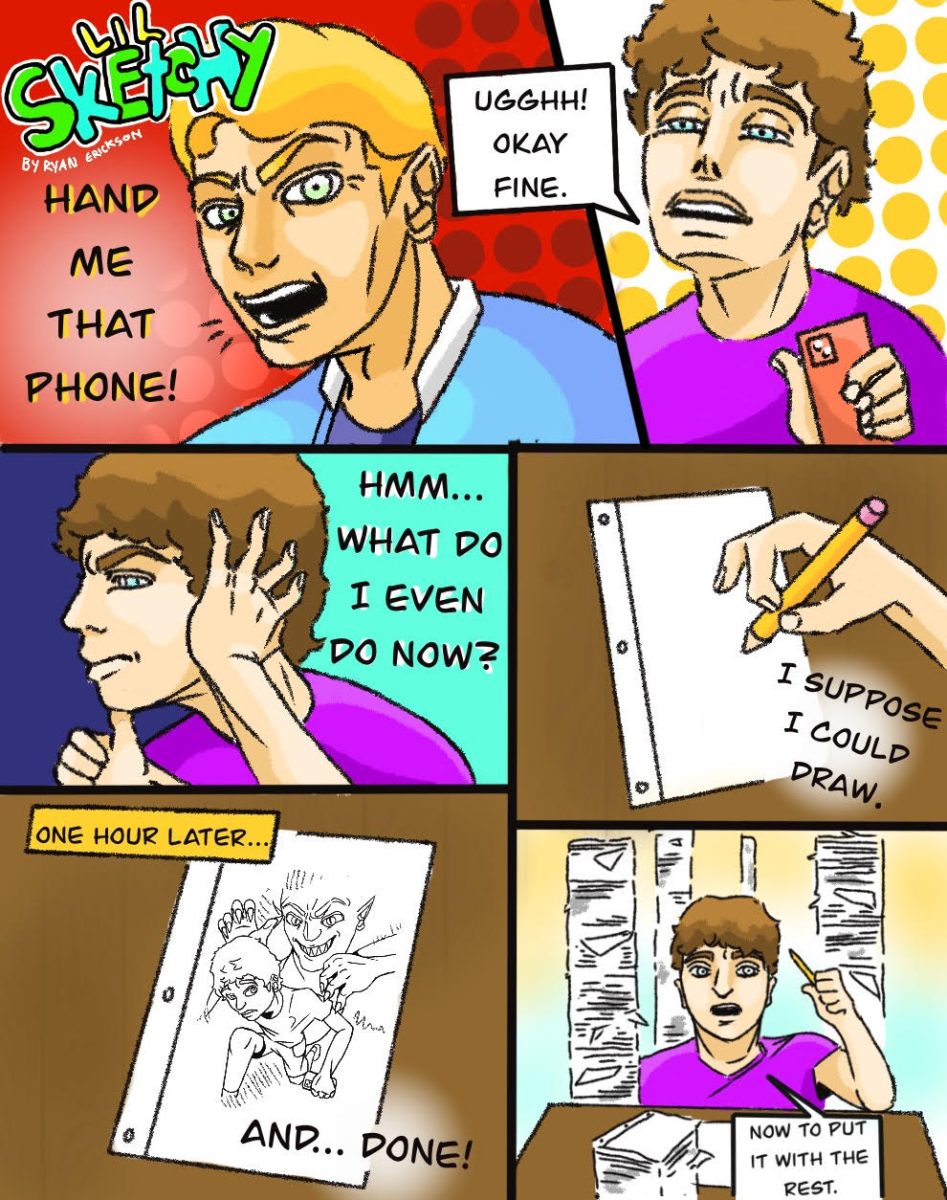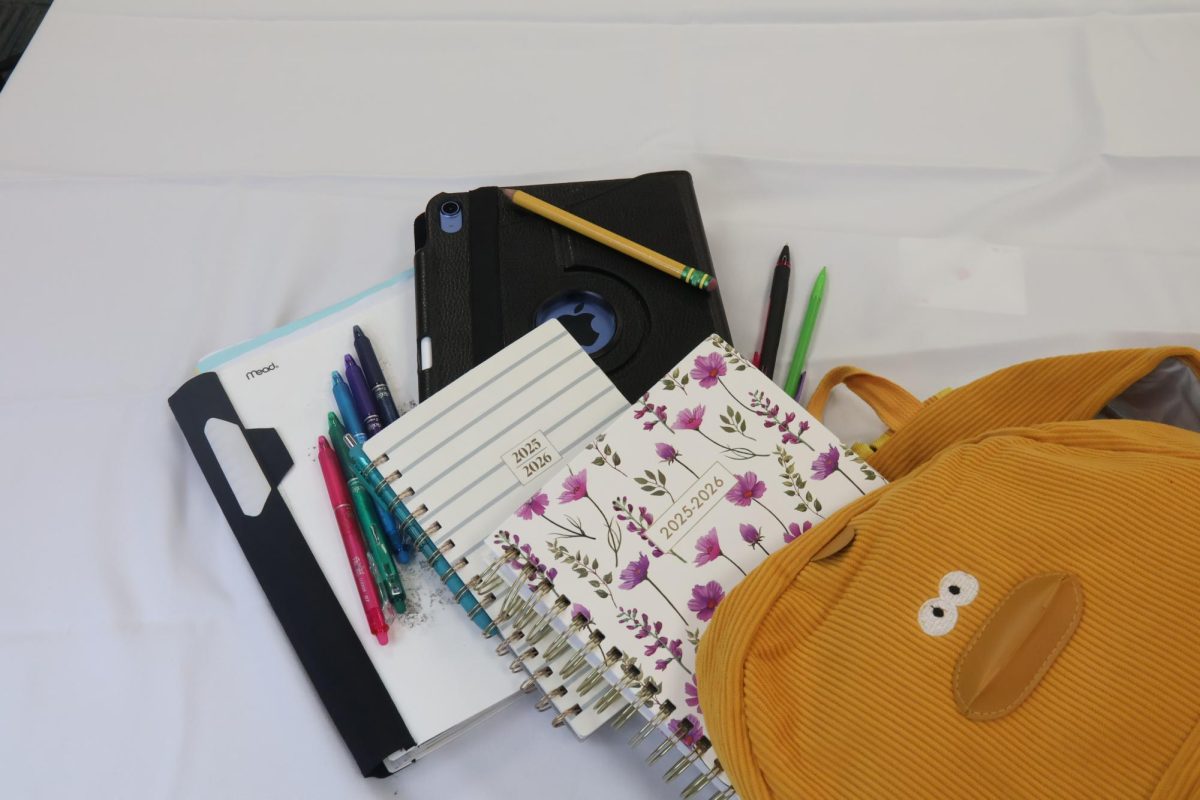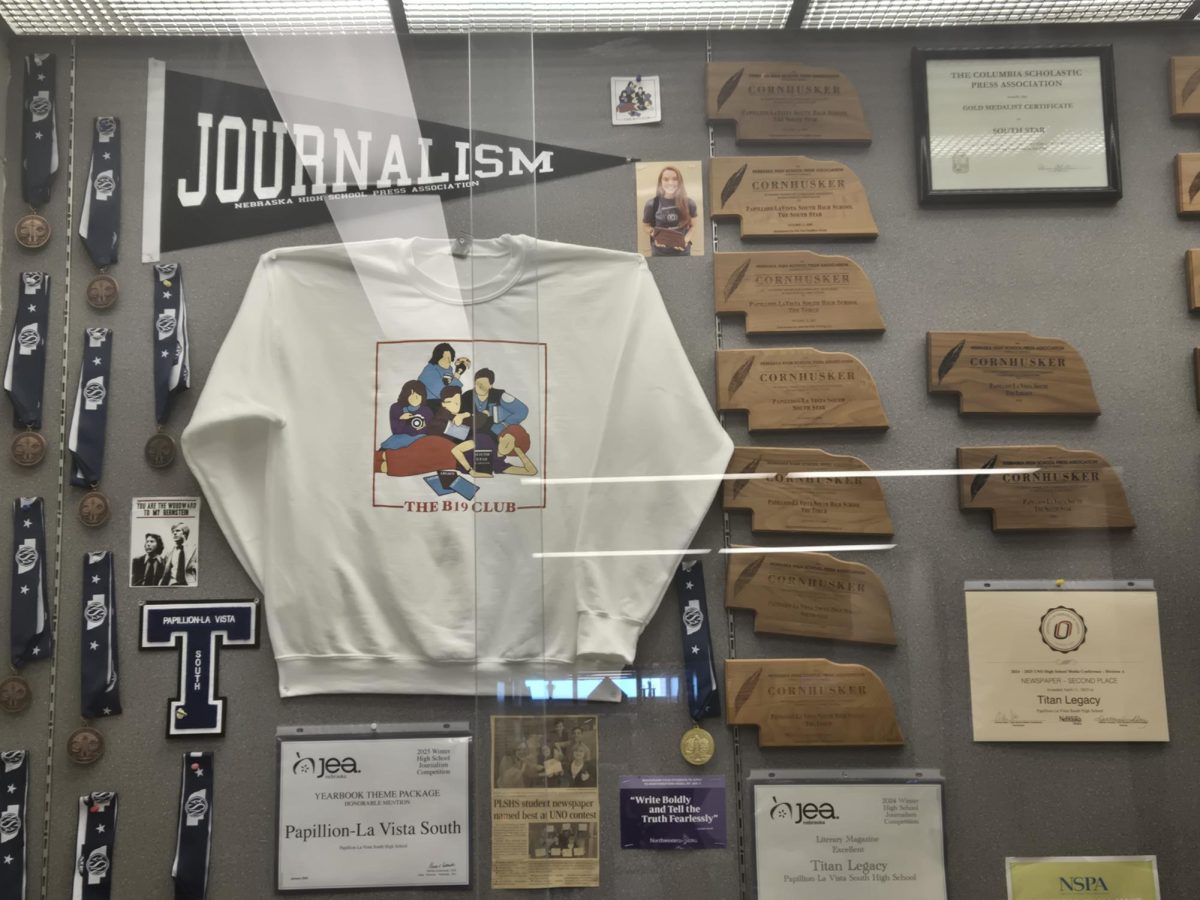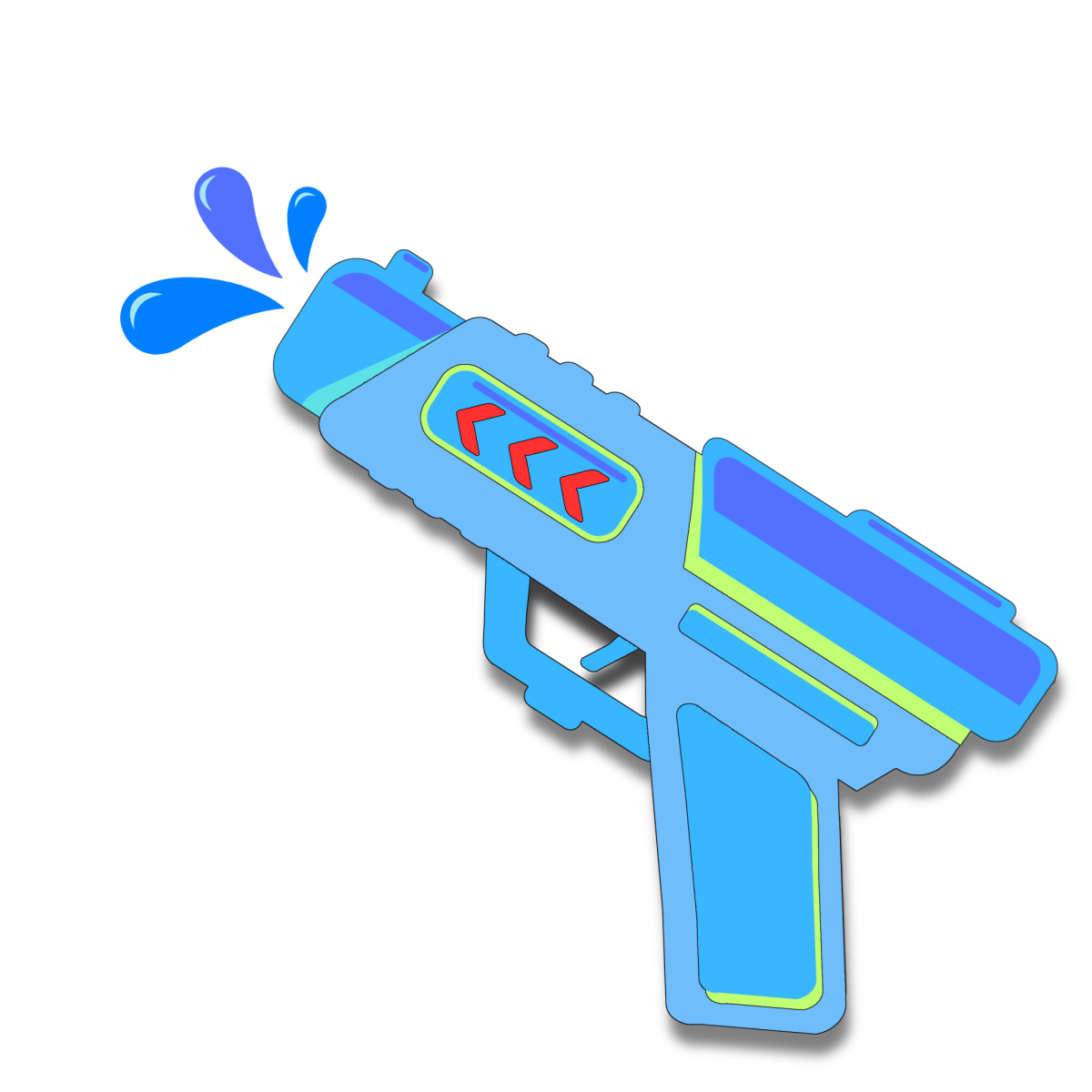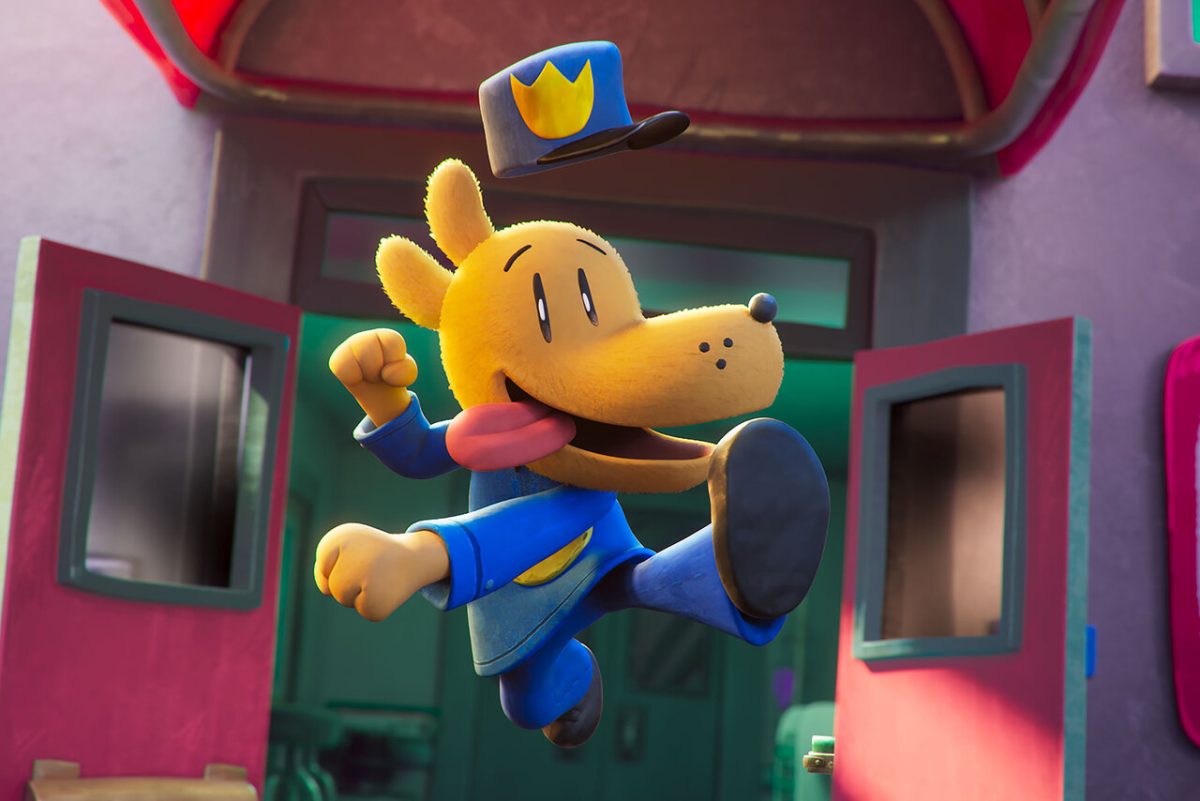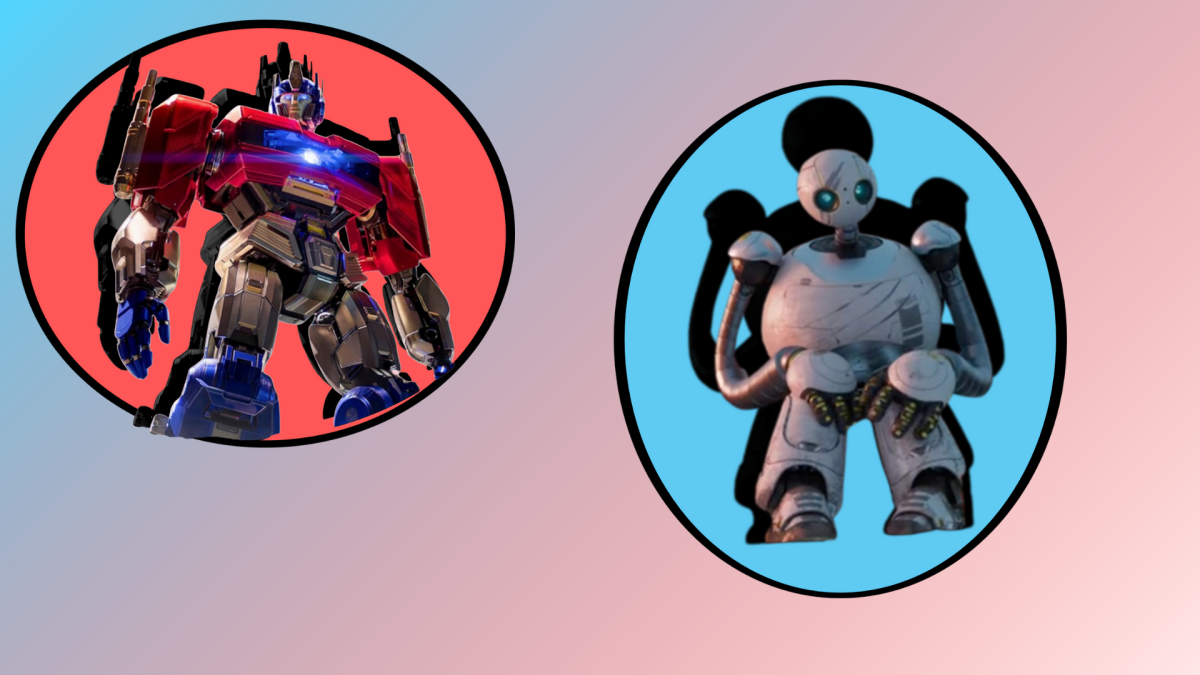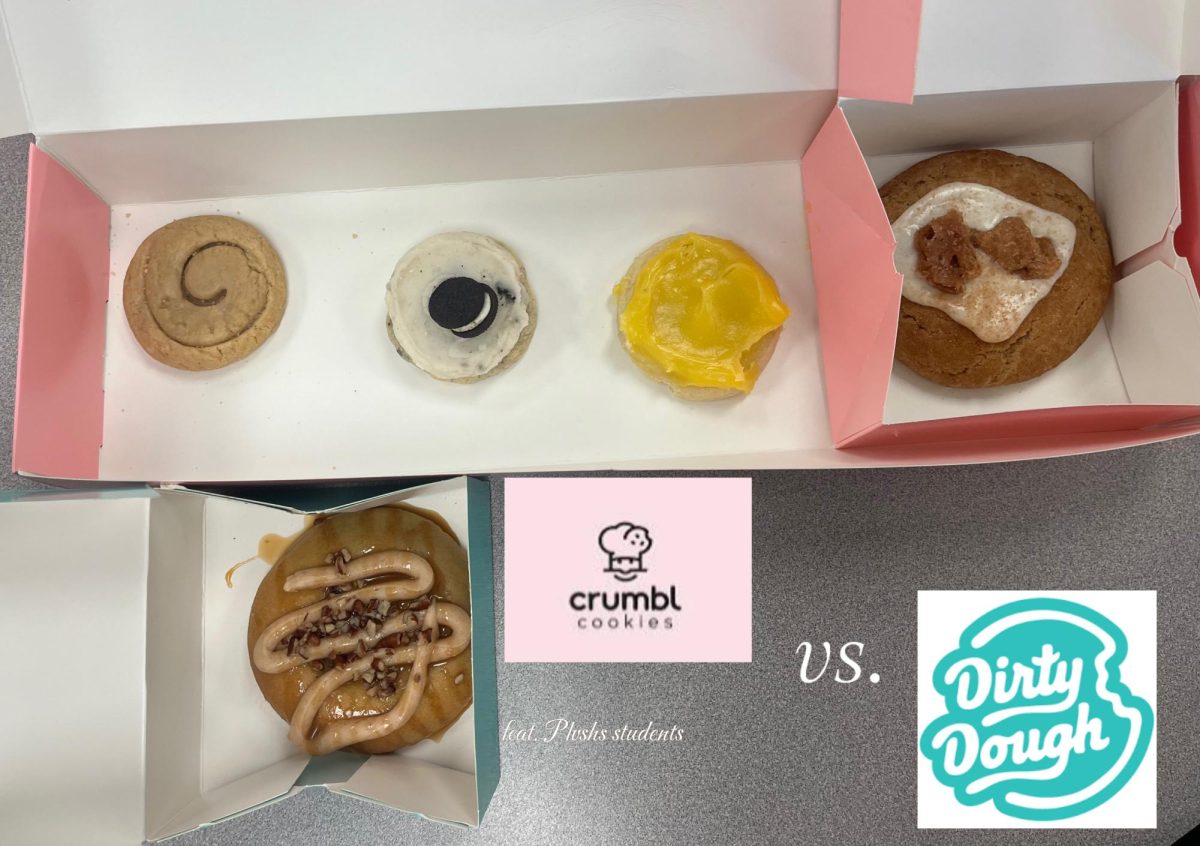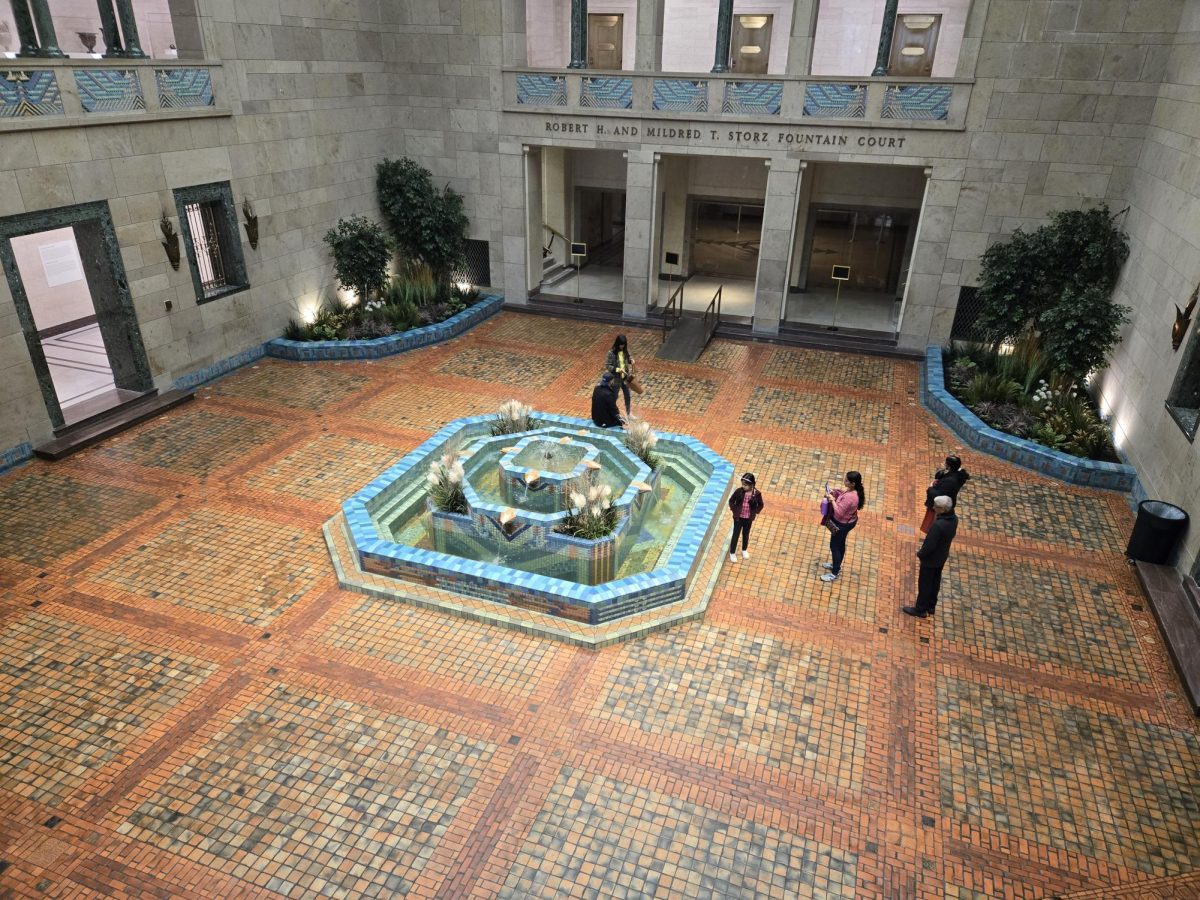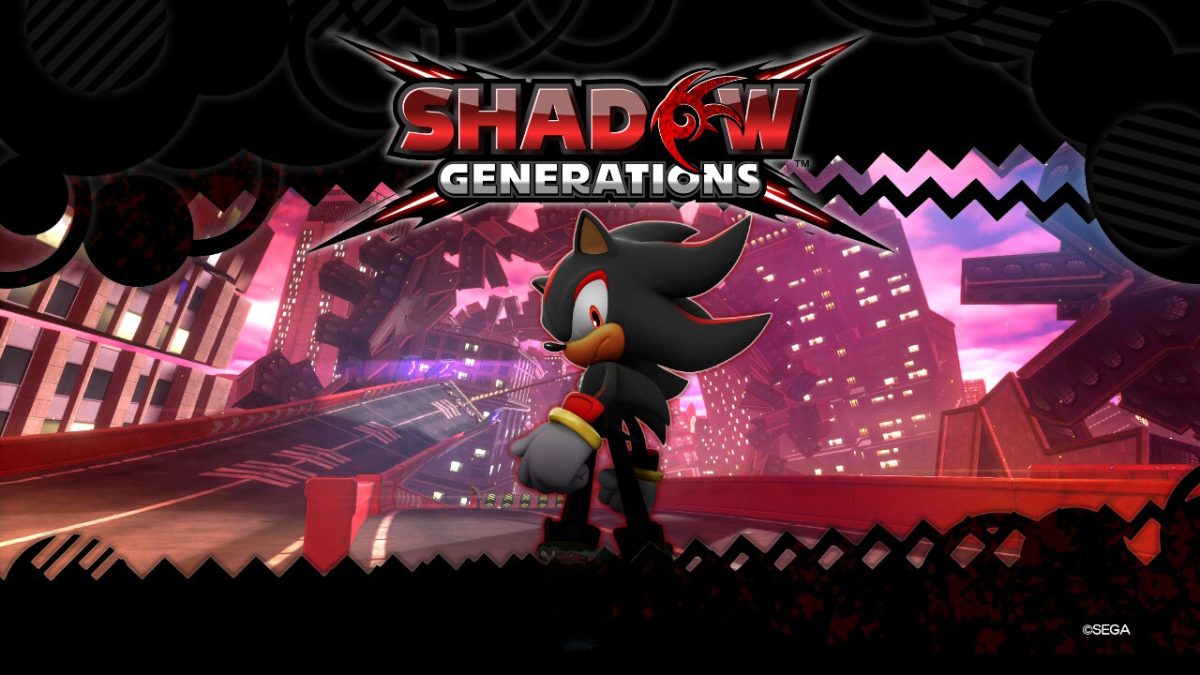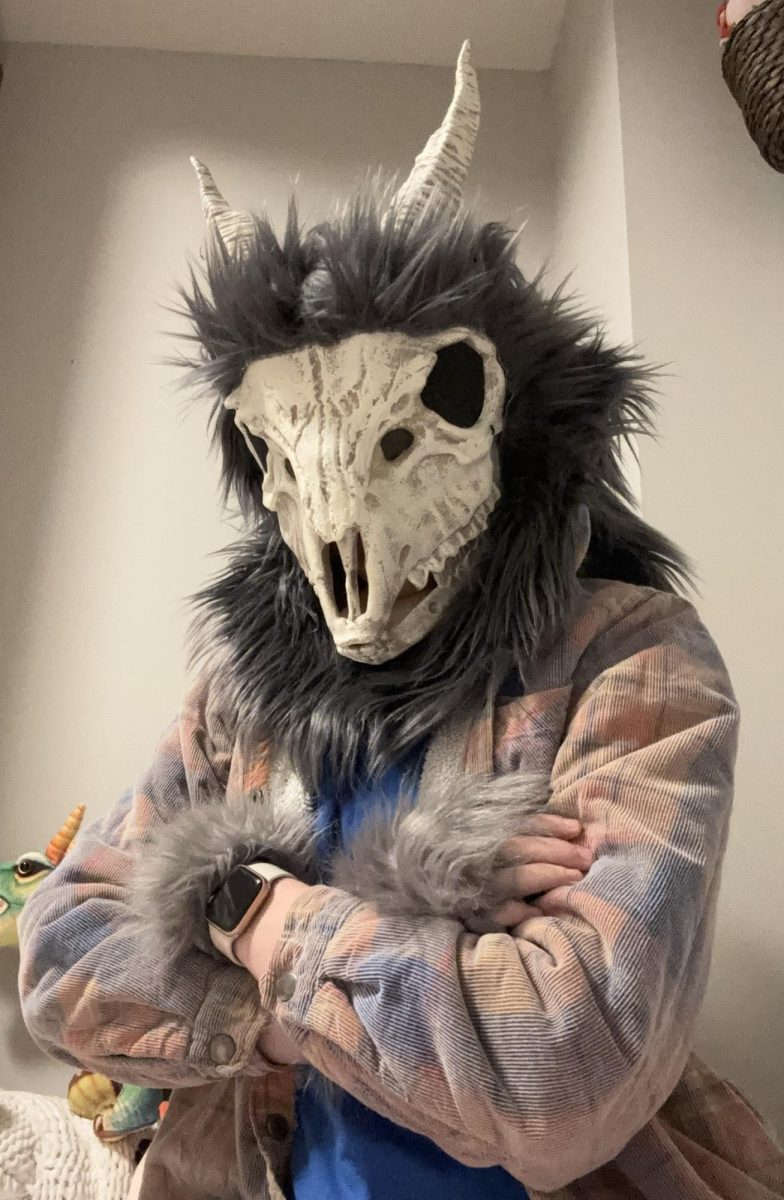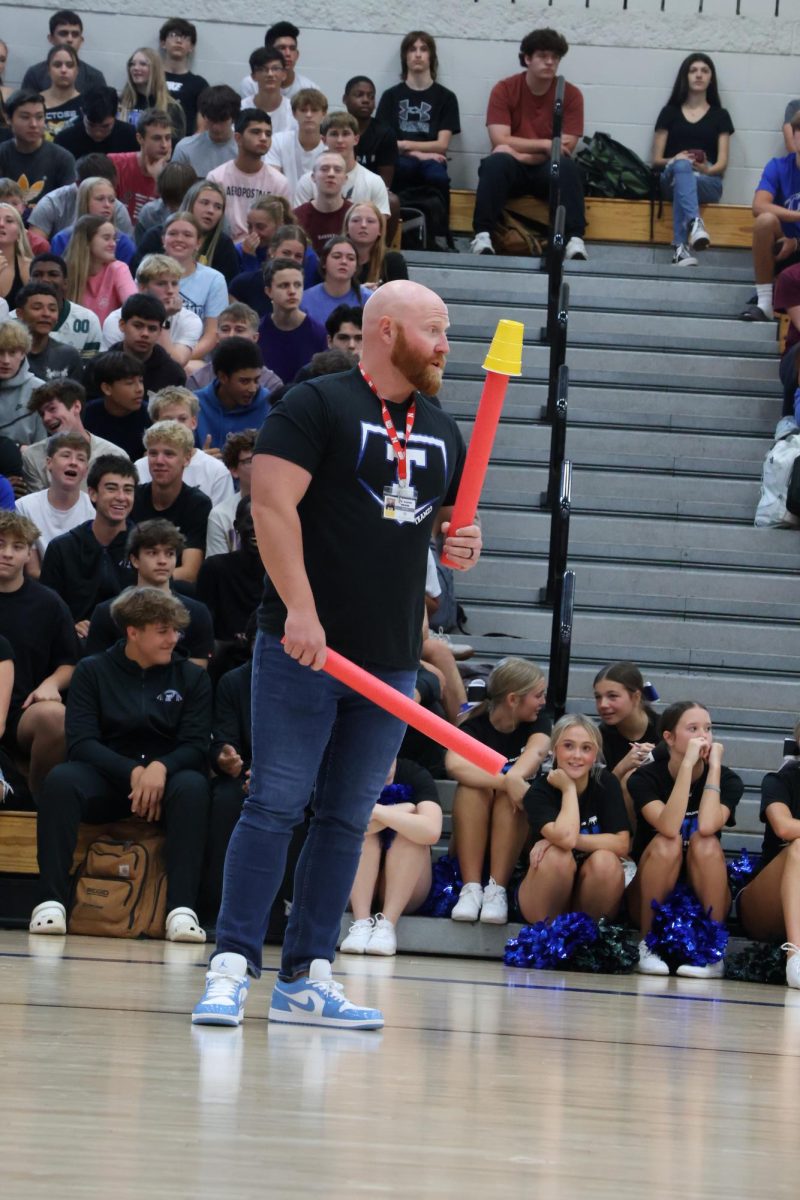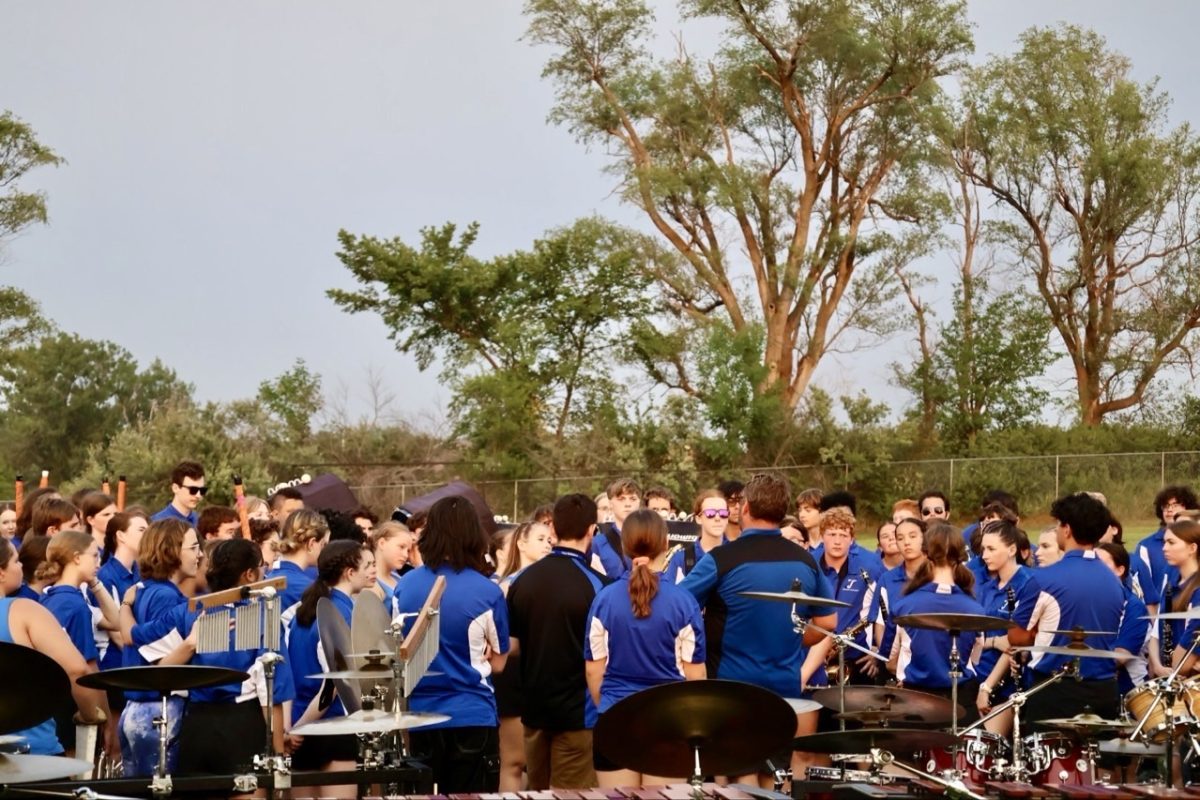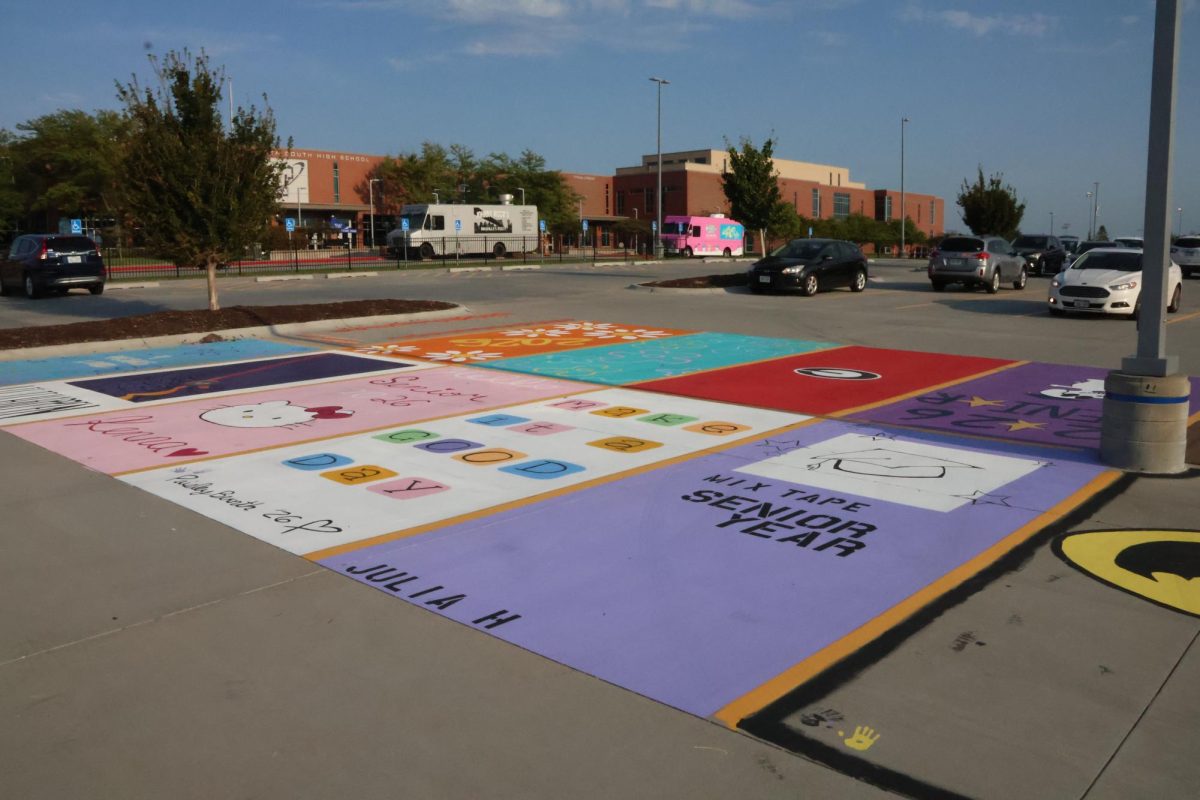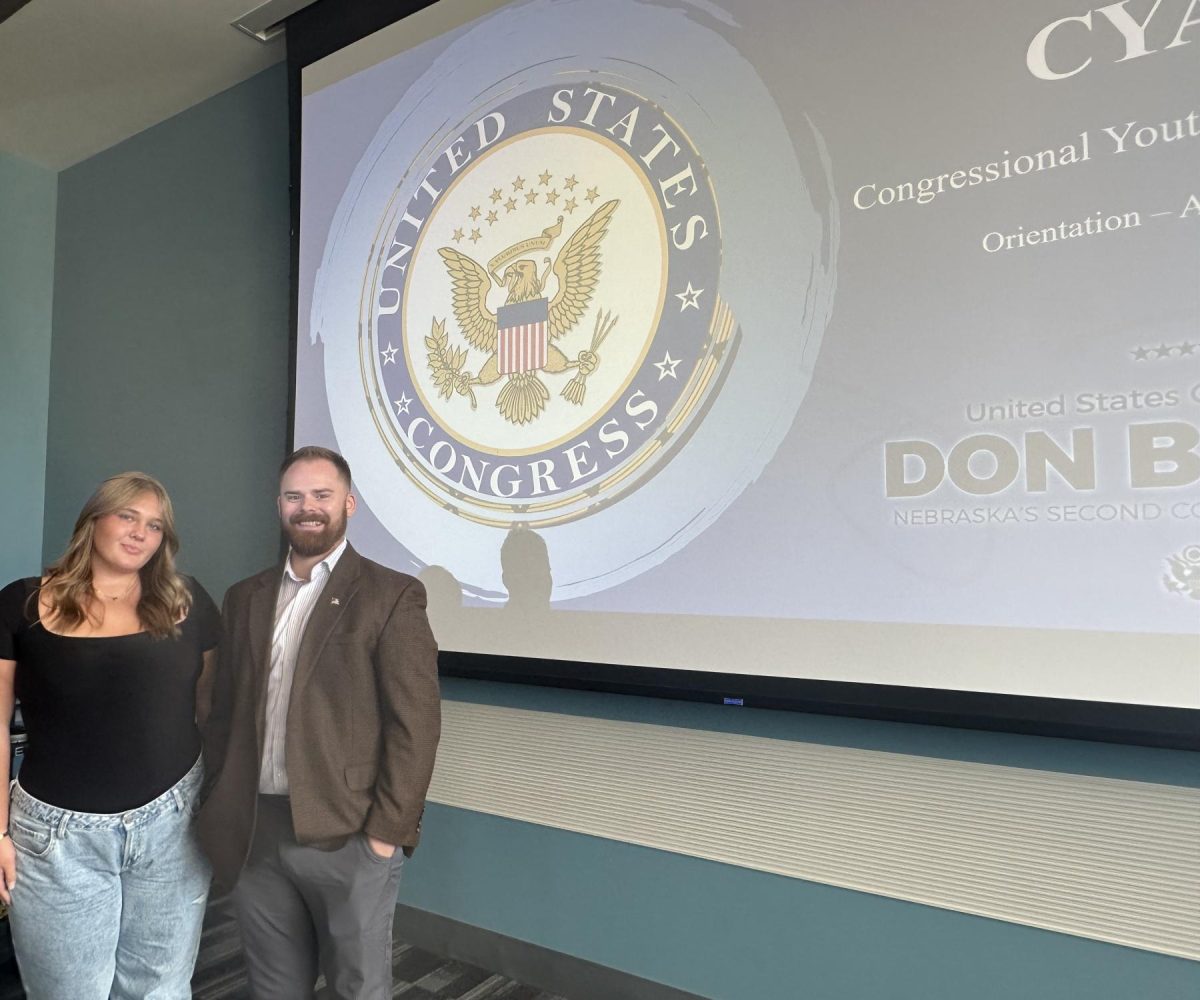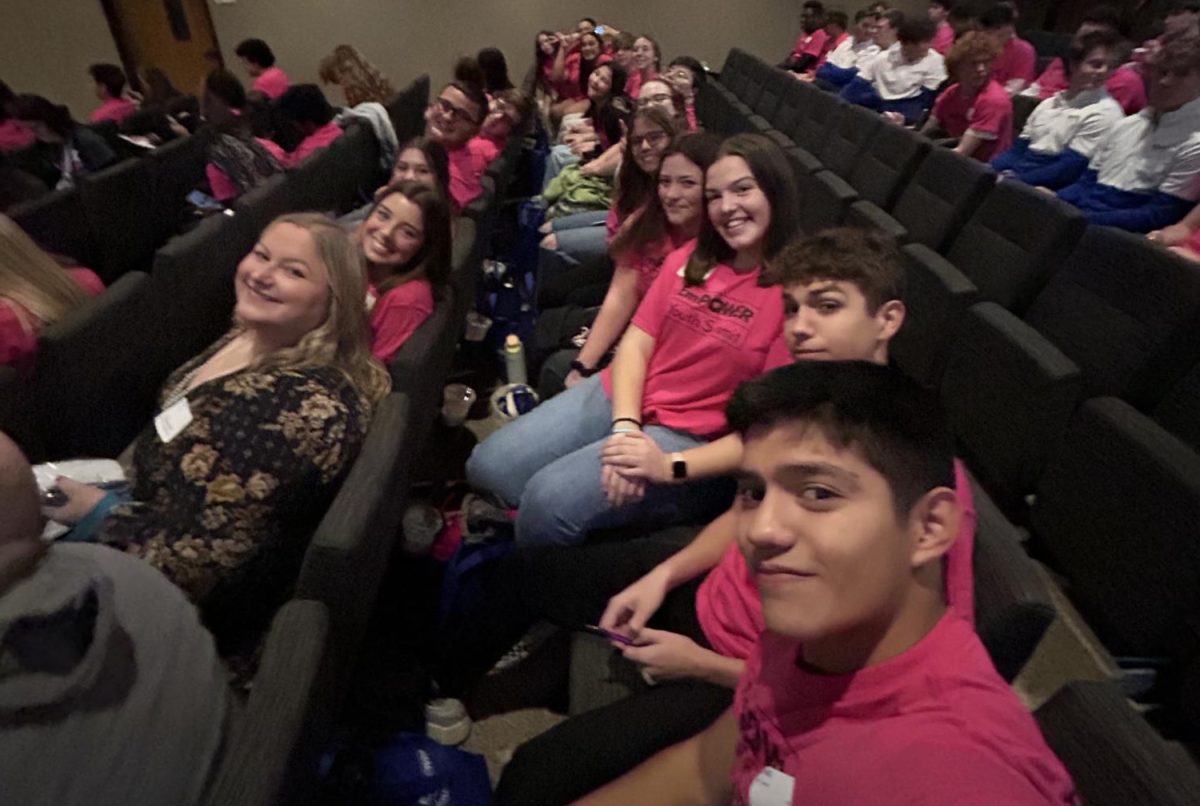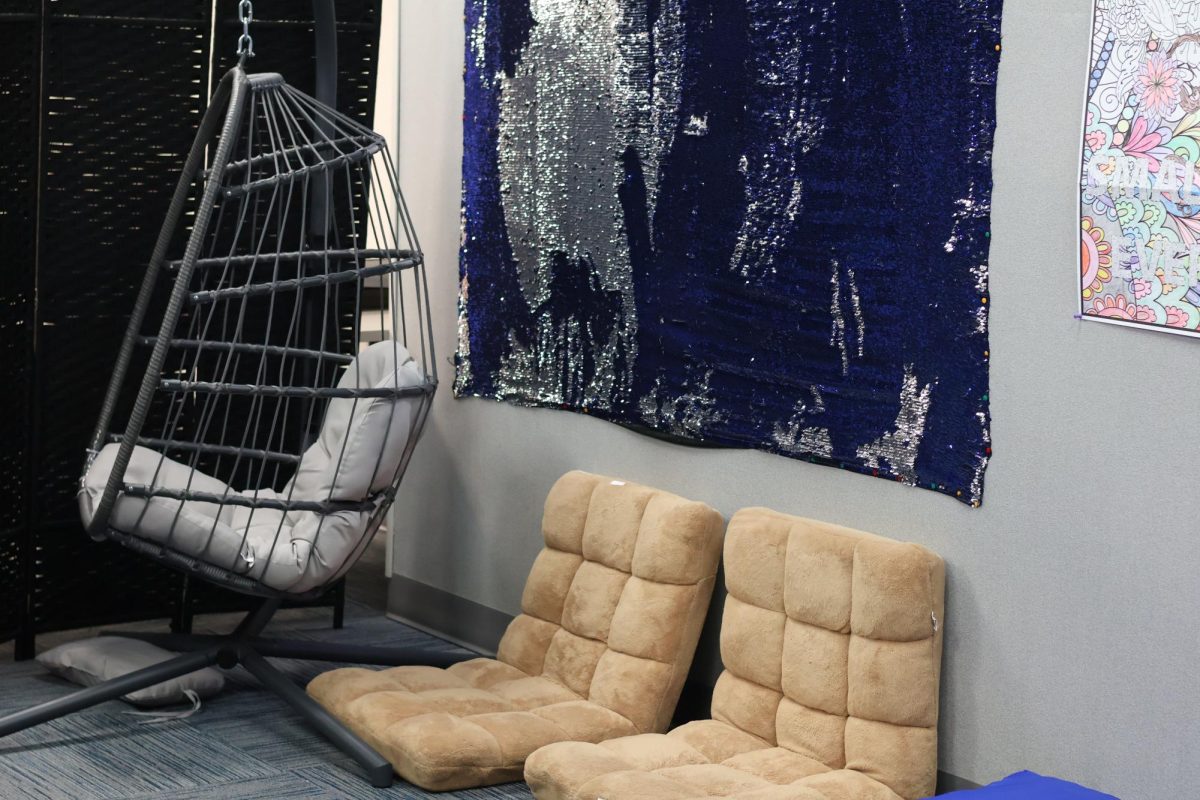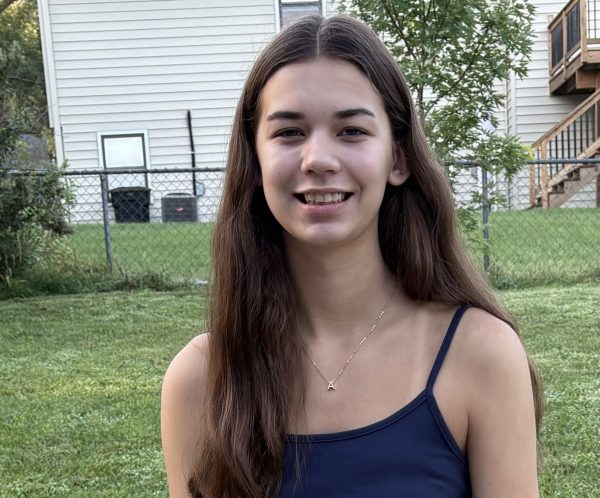1. What do you think defines Mr. Kaden Moore in the minds of people who know you?
“Well, I hope that people see me as a light to this school and that when they walk into my classroom that you’re not going to get any judgment from me, you’re not gonna, you know, get any sort of rude behavior your way. I’m gonna try to bring everybody up. I’m gonna be as positive as I can. I’m gonna bring a lot of energy. I think when you walk into my room, I think it’s pretty apparent that that’s what’s going on.”
2. Describe your thought process when competing in a pep rally.
“Hey, I, you know I’m a super competitive person, and, oftentimes, you know, I don’t play to lose games. I play games to win games, so I go all out and try to win the thing.”
3. What role does your world civ and psychology background play in your strategy?
“I kind of know how the brain works with adrenaline and all that stuff. I can kind of slow myself down. I can think, you know, like about my strategy. Midway through that jousting game, or the noodle game, that I was playing, I kind of just let people eliminate each other, … I waited in the background and kind of let them do their thing. Then that’s when I intervened. … Psychology says when you have fun doing something that you’re a lot better at it. So it’s kind of where I’m at…. I would also add, you know, like nervousness and excitement — right? — are the same emotion in our brain. So it’s all about what emotion you choose to pull from that. … Some people, in your brain, you get nervous, and people kind of let that nervousness show and they’re kind of, you know, they don’t compete as well; but with excitement, you can choose to be excited about something just by changing your language with things. I get to do this certain thing instead of I have to do this certain thing. So, … whenever Ms. Jatczak asks me to participate in a game, my initial thought is I get a little sick in my stomach, a little nervous, but then I just say, you know what, I get to do this in front of my students and have fun with it.”
4. When you moved up from middle school, what was the biggest difference you noticed?
“Just the students in general? I would say I mean, maturity for one, and then I’m always fascinated how creative and intelligent teenagers are. They don’t want to give themselves enough credit for it. But when I give a project or an activity that really allows them to just create and think critically, a lot of the work that I get is unbelievable. I think teenagers have a voice, they have ideas, they have intuition, but a lot of times that doesn’t get unlocked, it doesn’t get tapped into. … Middle school is almost like you’re just kind of babysitting and teaching at the same time. High school … you really see successful people create and be intuitive and do all these sorts of things. And so I would just say, you know, maturity speaks to that creativity piece, but I love just seeing students create stuff and discuss things. I mean they know what’s going on in the world.”
5. What’s something even your closest teacher friends don’t know about you?
“Oh, boy, … there’s a handful of teachers in this building that probably know too much about me. I would say that I’m not always this energetic, loud person. I get home and I’m a dad. And when I’m a dad, I try to, you know, teach my son and my daughter how to be successful, how to be a good person and have good characters and good morals and all that stuff. So I can’t always be Mr. Moore the crazy loud, fun teacher, right? Like sometimes I have to go home and I have to be mature and I have to actually have docile conversations, and you could say I wear two different hats, right? I wear a dad hat and I wear a Mr. Moore hat.”


![Pictured above is a structure that displays the names of Nebraska Vietnam veterans in order to “honor [their] courage, sacrifice and devotion to duty and country.”](https://plsouthsidescroll.com/wp-content/uploads/2025/10/Trey_092625_0014-e1760030641144-1200x490.jpg)
